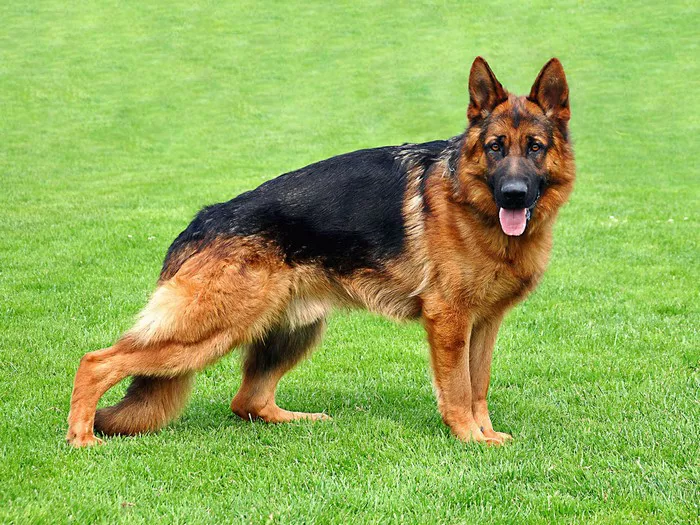German Shepherds, known for their intelligence, loyalty, and versatility, are cherished companions for many. As dog enthusiasts delve into the world of canine care, the question often arises: What is the longest a German Shepherd has lived? This comprehensive guide delves into the factors influencing the lifespan of German Shepherds, uncovering tales of exceptional longevity, and providing insights into promoting a healthy and extended life for these remarkable dogs.
Understanding the Average Lifespan
To comprehend the longest a German Shepherd has lived, it’s essential to first understand the average lifespan of this beloved breed. On average, German Shepherds typically live between 9 to 13 years. Various factors contribute to this range, including genetics, nutrition, healthcare, and lifestyle. Responsible ownership, proper veterinary care, and a focus on overall well-being are foundational elements in ensuring German Shepherds reach their expected lifespan and potentially go beyond.
Exceptional Cases
Amidst the typical lifespan range, there are extraordinary cases of German Shepherds surpassing expectations and living well into their late teens or even early twenties. These exceptional stories often highlight the importance of exceptional care, including a balanced diet, regular exercise, mental stimulation, and routine veterinary check-ups. While these cases are not the norm, they inspire dog owners to explore avenues for promoting longevity and enhancing the quality of life for their German Shepherd companions.
Genetics and Lifespan
The longest a German Shepherd has lived is intricately linked to genetics. A dog’s genetic makeup plays a crucial role in determining its overall health and potential lifespan. Responsible breeding practices that prioritize the health and genetic diversity of the breed contribute to the longevity of individual German Shepherds. When selecting a German Shepherd puppy, understanding the lineage and ancestry of the dog can provide insights into potential health risks and offer a foundation for proactive care to enhance lifespan.
Nutrition as a Key Contributor
The longevity of German Shepherds is significantly influenced by their diet. Providing a nutritionally balanced and age-appropriate diet supports overall health and contributes to a longer, healthier life. Quality dog food, tailored to the specific needs of German Shepherds, helps prevent obesity, maintain a healthy weight, and addresses nutritional requirements at different life stages. Consulting with a veterinarian to determine the optimal diet for a German Shepherd can be a proactive step in promoting longevity and well-being.
Exercise and Mental Stimulation
Physical activity and mental stimulation are integral components of promoting longevity in German Shepherds. Regular exercise not only helps maintain a healthy weight but also supports joint health, cardiovascular function, and overall vitality. Mental stimulation, including interactive toys, puzzle games, and training activities, keeps the German Shepherd’s intelligent mind engaged, contributing to emotional well-being. A fulfilling and active lifestyle is a key factor in the longest a German Shepherd has lived.
Routine Veterinary Care
Routine veterinary care is paramount in supporting the longevity of German Shepherds. Regular check-ups, vaccinations, dental care, and preventive measures for common health issues contribute to the overall well-being of these dogs. Detecting and addressing potential health concerns early can significantly impact the longest a German Shepherd has lived. Veterinary professionals play a crucial role in partnering with dog owners to create personalized care plans that cater to the unique health needs of individual German Shepherds.
Quality of Life in the Senior Years
As German Shepherds enter their senior years, adapting care to address age-related changes becomes essential. Specialized senior dog food, joint supplements, and modified exercise routines help accommodate the changing needs of aging dogs. Regular veterinary check-ups become even more critical to monitor and address age-related health issues promptly. Creating a comfortable and enriched environment ensures German Shepherds can age gracefully, maintaining their quality of life well into their golden years.
Common Health Challenges
Certain health challenges are more prevalent in German Shepherds and can impact their lifespan. These include hip dysplasia, degenerative myelopathy, and certain genetic conditions. Proactive measures, such as regular screenings, joint supplements, and breed-specific health considerations, can help mitigate these risks. Awareness of breed-specific health challenges allows dog owners and veterinarians to implement preventive strategies and address emerging issues promptly, contributing to a longer and healthier life for German Shepherds.
Environmental Factors
The living environment significantly influences the longevity of German Shepherds. Providing a safe and comfortable living space, free from potential hazards, supports their overall well-being. Climate considerations, protection from extreme temperatures, and a secure outdoor area for exercise contribute to an environment conducive to a longer life. Owners who prioritize the safety and comfort of their German Shepherds create a foundation for a fulfilling and extended canine lifespan.
Emotional Well-being
Beyond physical health, emotional well-being is a crucial aspect of promoting the longest a German Shepherd has lived. These intelligent and loyal dogs thrive on companionship, positive interactions, and a sense of belonging. Spending quality time with a German Shepherd, offering affection, and addressing behavioral needs contribute to their emotional health. A strong bond between a dog and its owner fosters a sense of security and happiness, positively impacting the dog’s overall well-being and potentially extending its lifespan.
Conclusion
In conclusion, the longest a German Shepherd has lived is a testament to the dedicated care and responsible ownership provided by dog enthusiasts. Understanding the factors influencing lifespan, from genetics and nutrition to exercise and emotional well-being, empowers owners to create environments that support a longer and healthier life for their cherished companions. By embracing a holistic approach to canine care and celebrating the unique qualities of German Shepherds, owners can forge lifelong bonds that transcend the typical lifespan, creating cherished memories that endure for years to come.


